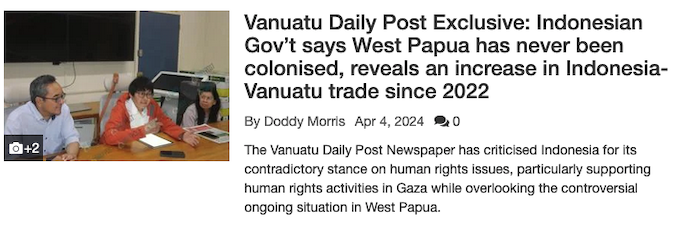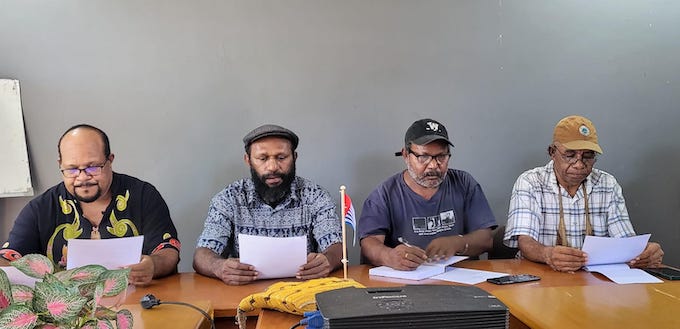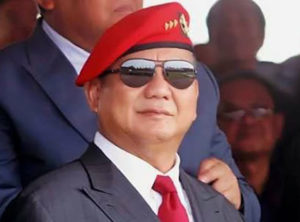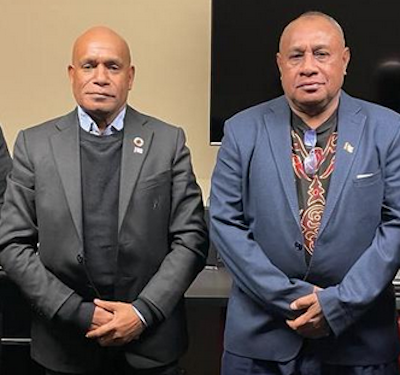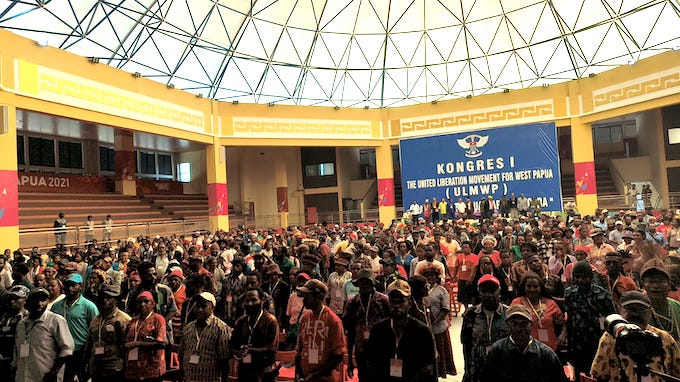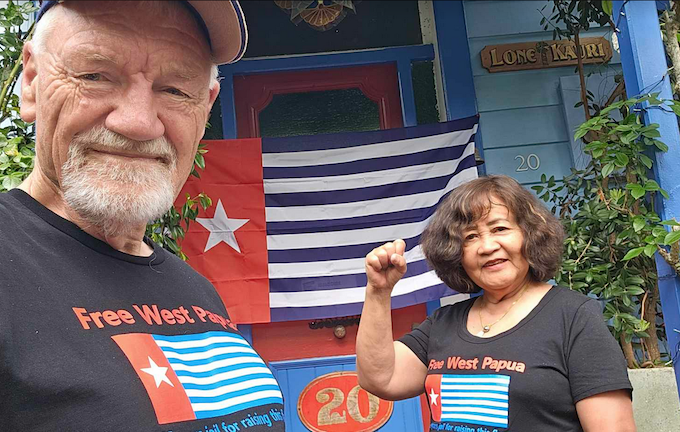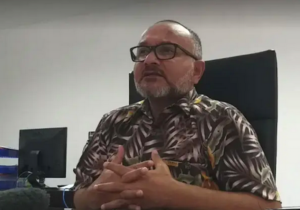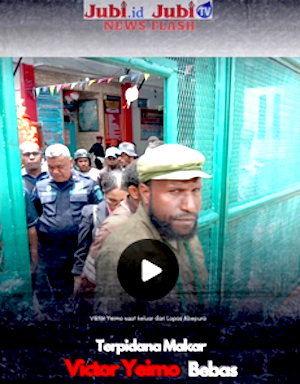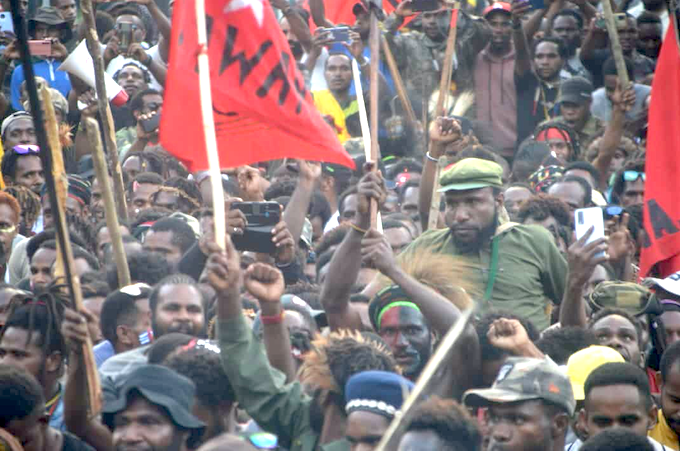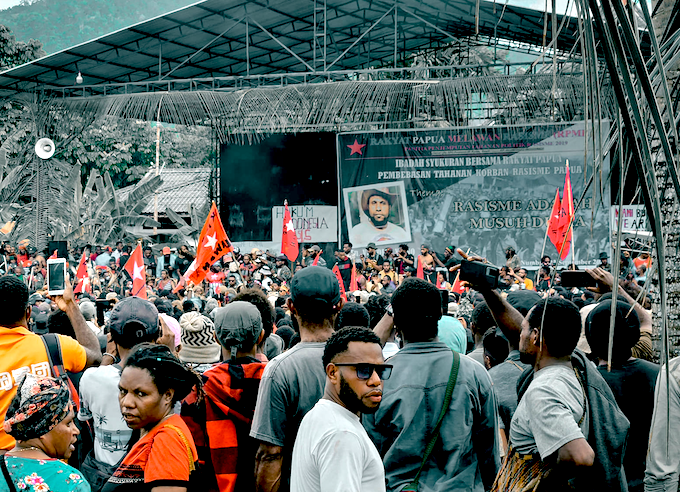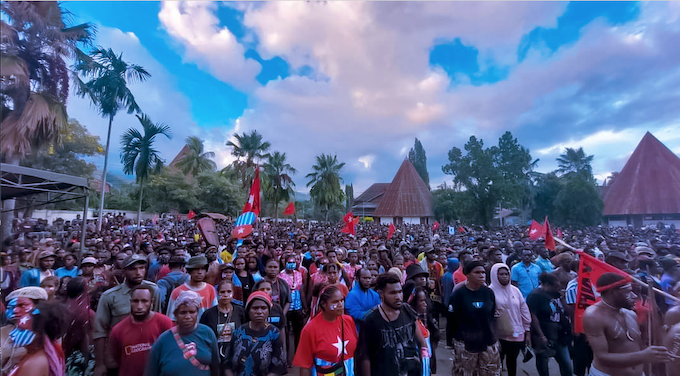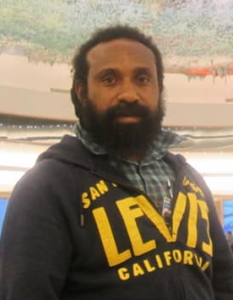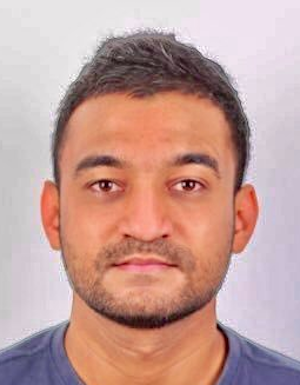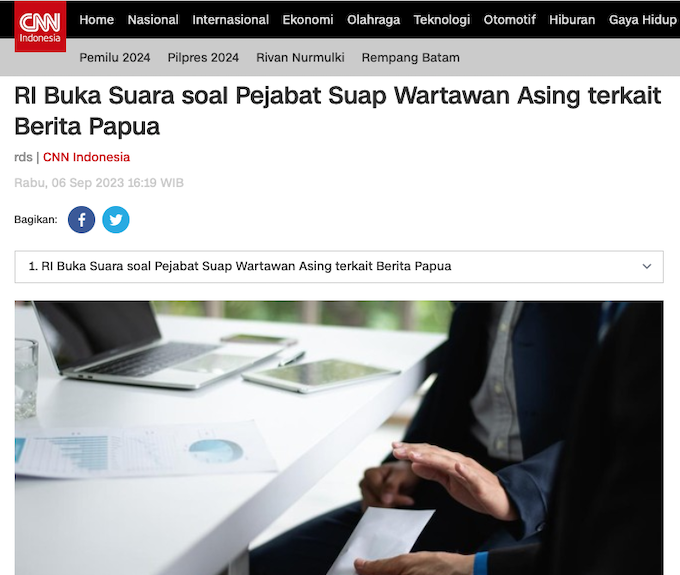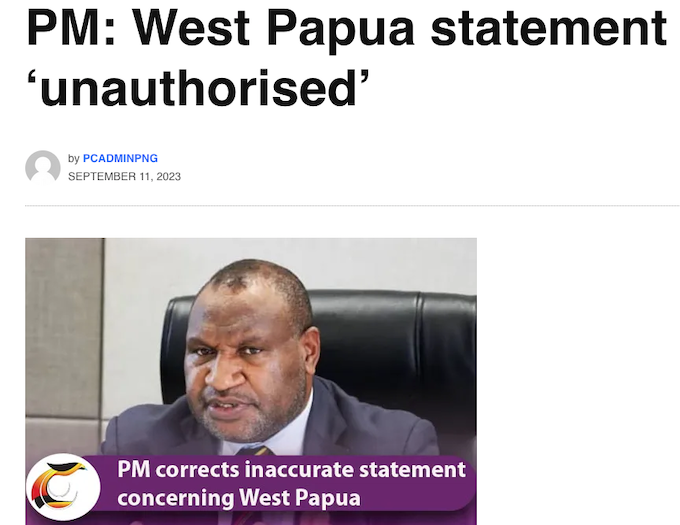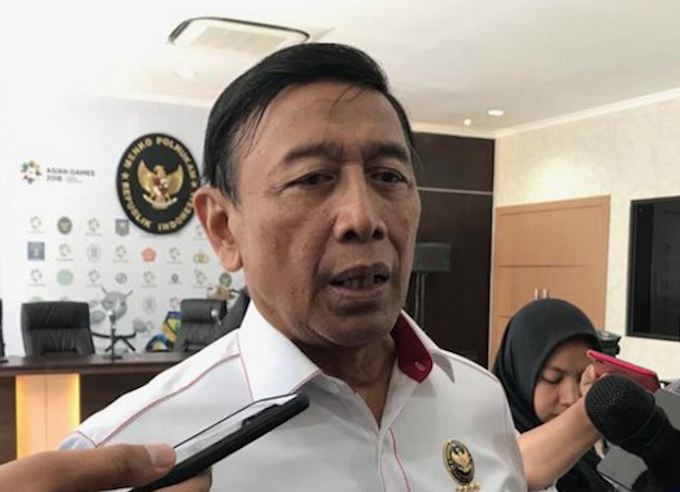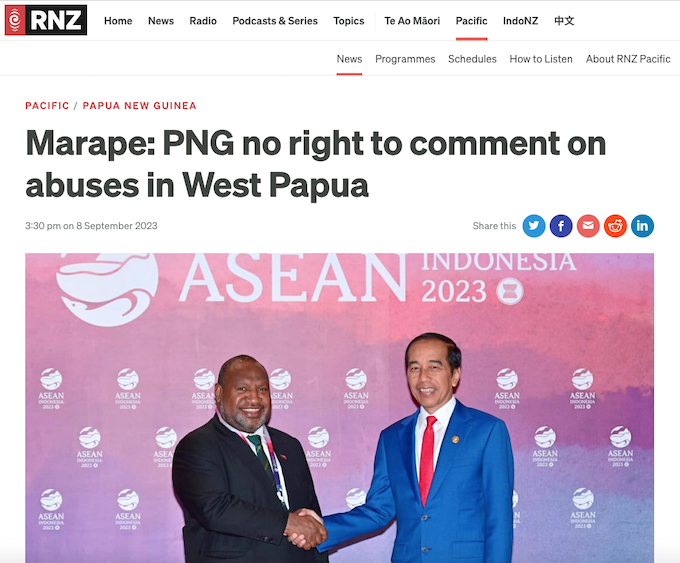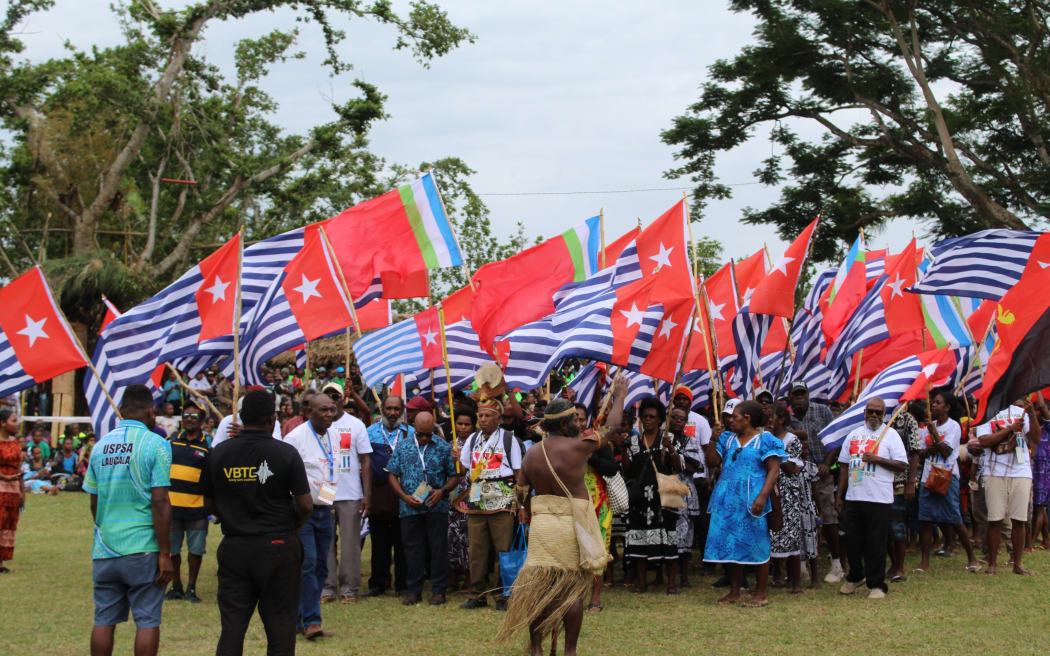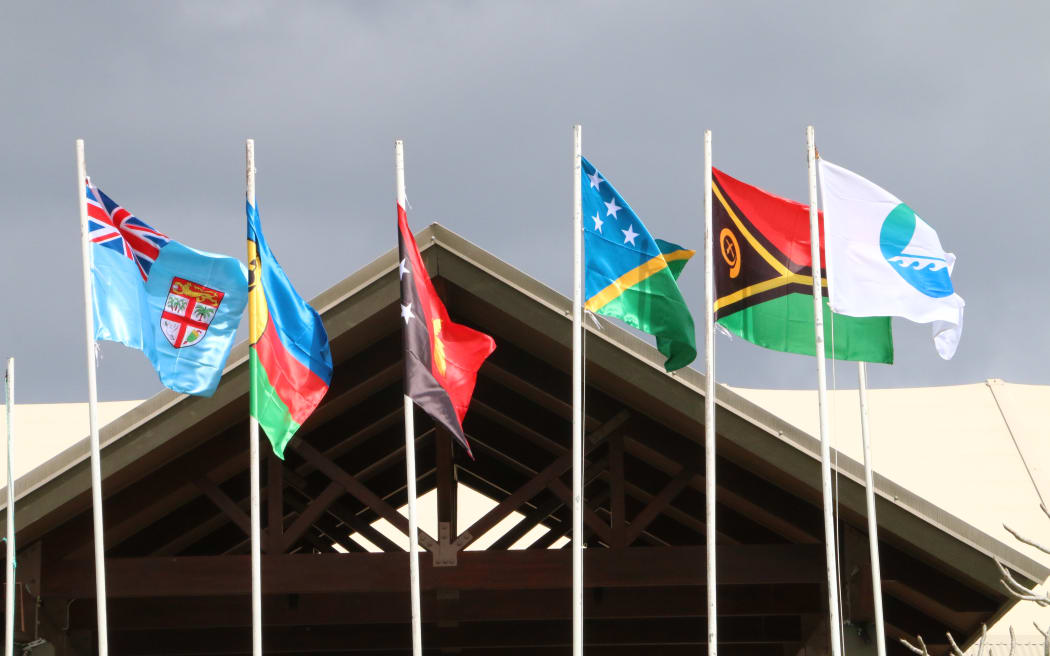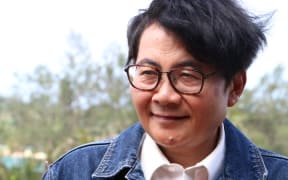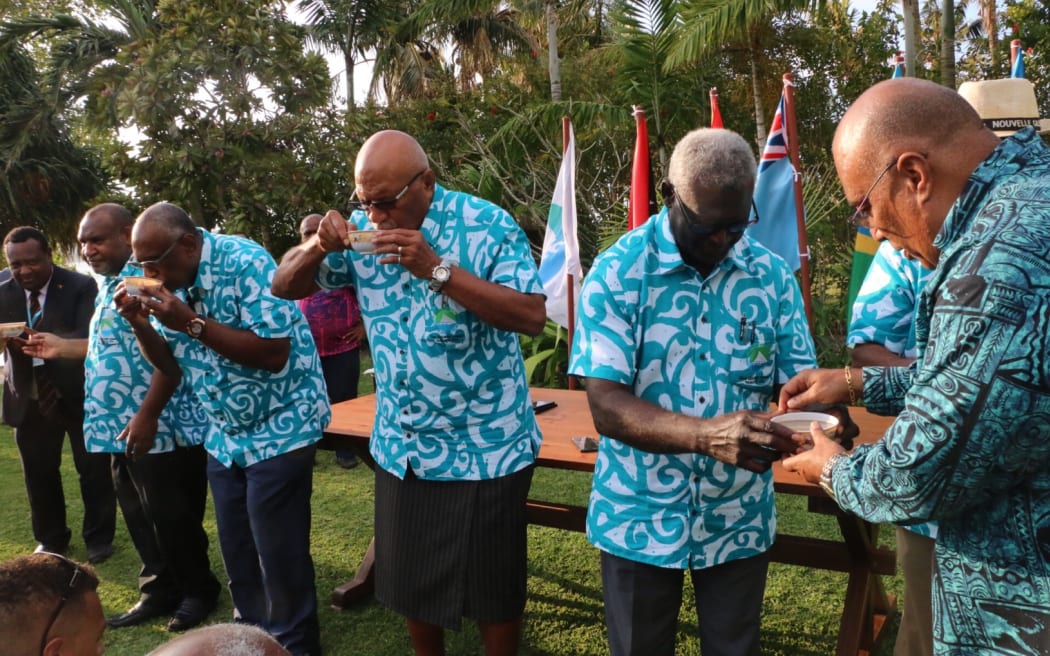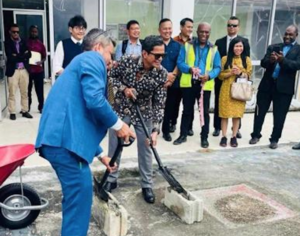By Sharon Muller of Arah Juang
On Friday, March 22, a video circulated of TNI (Indonesian military) soldiers torturing a civilian in Papua. In the video, the victim is submerged in a drum filled with water with his hands tied behind his back.
The victim was alternately beaten and kicked by the TNI members. The victim’s back was also slashed with a knife.
The video circulated globally quickly and was widely criticised.
Gustav Kawer from the Papua Association of Human Rights Advocates (PAHAM) condemned the incident and called for the perpetrators to be brought to justice.
This was then followed by National Human Rights Commission (Komnas HAM), Indonesian Human Rights Watch (Imparsial), the Diocese, the church and students.
Meanwhile, Cenderawasih/XVII regional military commander (Pangdam) Major-General Izak Pangemanan tried to cover up the crime by saying it was a hoax and the video was a result of “editing”.
This argument was later refuted by the TNI itself and it was proven that TNI soldiers were the ones who had committed the crime. Thirteen soldiers were arrested and accused over the torture.
The torture occurred on 3 February 2024 in Puncak Regency, Papua.
Accused of being ‘spies’
The victim who was seen in the video was Defianus Kogoya, who had been arrested along with Warinus Murib and Alianus Murib. They were arrested and accused of being “spies” for the West Papua National Liberation Army-Free Papua Organisation (TPNPB-OPM), a cheap accusation which the TNI and police were subsequently unable to prove.
Indonesia human rights: 13 soldiers arrested after torture video. Video: Al Jazeera
The three were arrested when the TNI was conducting a search in Amukia and Gome district. When Warinus was arrested, his legs were tied to a car and he was dragged for one kilometre, before finally being tortured.
Alianus, meanwhile ,was also taken to a TNI post and tortured. After several hours, they were finally handed over to a police post because there was not enough evidence to prove the TNI’s accusations.
Defianus finally fainted, while Warinus died of his injuries. Warinus’ body was cremated by the family the next day on February 4.
Defianus is still suffering and remains seriously ill. This is a TNI crime in Papua.
But that is not all. On 22 February 2022, the TNI also tortured seven children in Sinak district, Puncak. The seven children were Deson Murib, Makilon Tabuni, Pingki Wanimbo, Waiten Murib, Aton Murib, Elison Murib and Murtal Kurua.
Makilon Tabuni died as a result.
Civilians murdered, mutilated
On August 22, the TNI murdered and mutilated four civilians in Timika. They were Arnold Lokbere, Irian Nirigi, Lemaniel Nirigi and Atis Tini.
The bodies of the four were dismembered: the head, body and legs were separated into several parts, put in sacks then thrown into a river.
Six days later, soldiers from the Infantry Raider Battalion 600/Modang tortured four civilians in Mappi regency, Papua. The four were Amsal P Yimsimem, Korbinus Yamin, Lodefius Tikamtahae and Saferius Yame.
They were tortured for three hours and suffered injuries all over their bodies.
Three days later, on August 30, the TNI again tortured two civilians named Bruno Amenim Kimko and Yohanis Kanggun in Edera district, Mappi regency. Bruno Amenim died while Yohanis Kanggun suffered serious injuries.
On October 27, three children under the age of 16 were tortured by the TNI in Keerom regency. They were Rahmat Paisel, Bastian Bate and Laurents Kaung. They were tortured using chains, coils of wire and water hoses.
The atrocity occurred in the Yamanai Village, Arso II, Arso district.
On 22 February 2023, TNI personnel from the Navy post in Lantamal X1 Ilwayap tortured two civilians named Albertus Kaize and Daniel Kaize. Albertus Kaize died of his injuries. This crime occurred in Merauke regency, Papua.
95 civilians tortured
Between 2018 and 2021, Amnesty International recorded that more than 95 civilians had been tortured and killed by the TNI and the police. These crimes target indigenous Papuans, and the curve continues to rise year by year, ever since Indonesia occupied Papua in 1961.
These crimes were committed one after another without a break, and followed the same pattern. So it can be concluded that these were not the acts of rogue individuals or one or two people as the TNI argues to reduce their crimes to individual acts.
Rather, they are structural (systematic) crimes designed to subdue the Papuan nation, to stop all forms of Papuan resistance for the sake of the exploitation and theft of Papua’s natural resources.
The problems in Papua cannot be solved by increasing the number of police or soldiers. The problems in Papua must be resolved democratically.
This democratic solution must include establishing a human rights court for all perpetrators of crimes in Papua since the 1960s, and not just the perpetrators in the field, but also those responsible in the chain of command.
Only this will break the pattern of crimes that are occurring and provide justice for the Papuan people. A human rights court will also mean weakening the anti-democratic forces that exist in Indonesia and Papua — namely military(ism).
Garbage of history
A prerequisite for achieving democratisation is to eliminate the old forces, the garbage of history.
The cleaner the process is carried out, the broader and deeper the democracy that can be achieved. This also includes the demands of the Papuan people to be given the right to determine their own destiny.
This is not a task for some later day, but is the task of the Papuan people today. Nor is the task of the United Liberation Movement for West Papua (ULMWP) political elite or political activists alone, but it is the task of all Papuan people if they want to extract themselves from the crimes of the TNI and police or Indonesian colonialism.
Independence can only be gained by the struggle of the ordinary people themselves. The people must fight, the people must take to the streets, the people must build their own ranks, their own alternative political tool, and fight in an organised and guided manner.
Sharon Muller is a leading member of the Socialist Union (Perserikatan Sosialis, PS) and a member of the Socialist Study Circle (Lingkar Studi Sosialis, LSS). Arah Juang is the newspaper of the Socialist Union.
Translated by James Balowski for Indoleft News. The original title of the article was “Kejahatan TNI di Papua dan Solusi Demokratis Untuk Rakyat Papua dan Indonesia”.
References
Gemima Harvey’s report The Human Tragedy of West Papua, 15 January 2014. This reports states that more than 500,000 West Papua people have been slaughtered by Indonesia and its actors, the TNI and police since 1961.
Veronica Koman’s chronology of torture of civilians in Papua. Posted on the Veronica Koman Facebook wall, 24 March 2024.
Jubi, Alleged torture of citizens by the TNI adds to the long list of violence in the land of Papua. 23 March 2024.
VOA Indonesia, Amnesty International: 95 civilians in Papua have been victims of extrajudicial killings.
This post was originally published on Asia Pacific Report.
